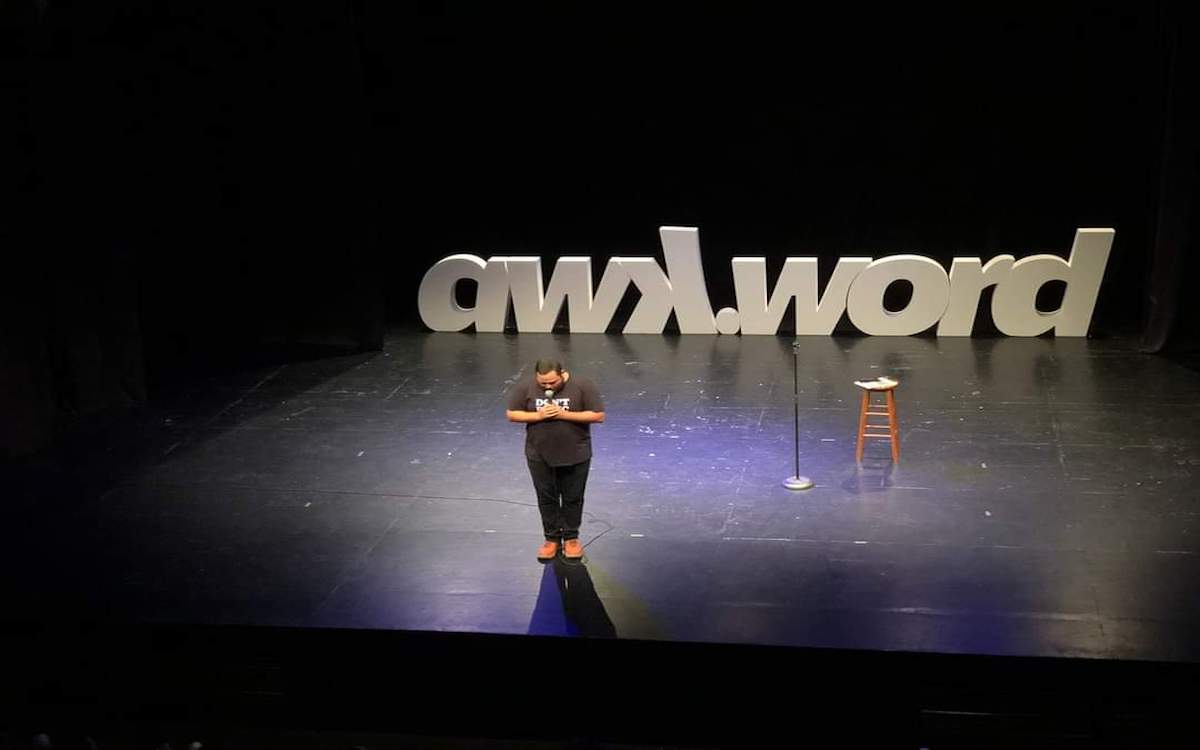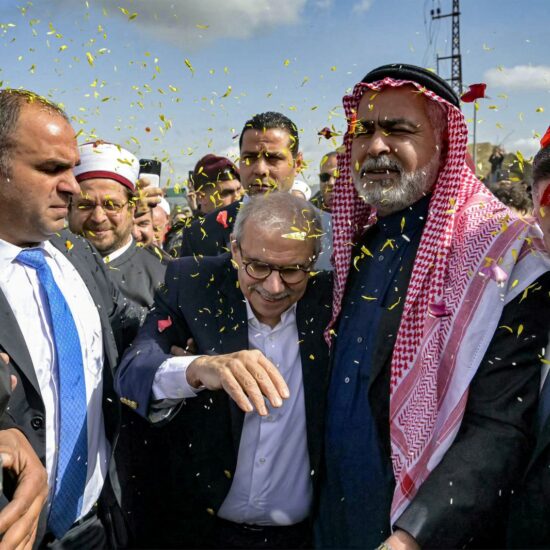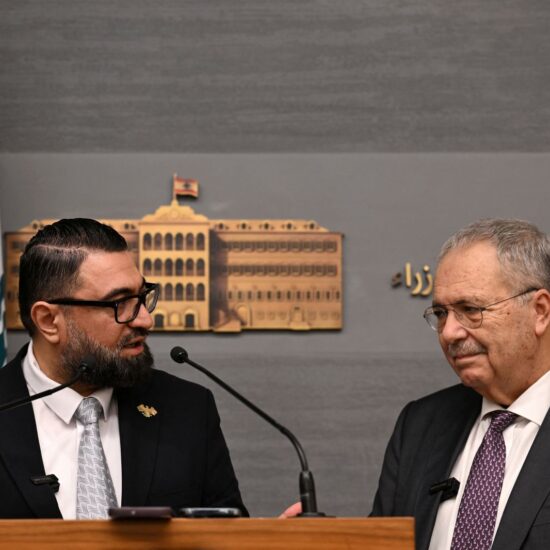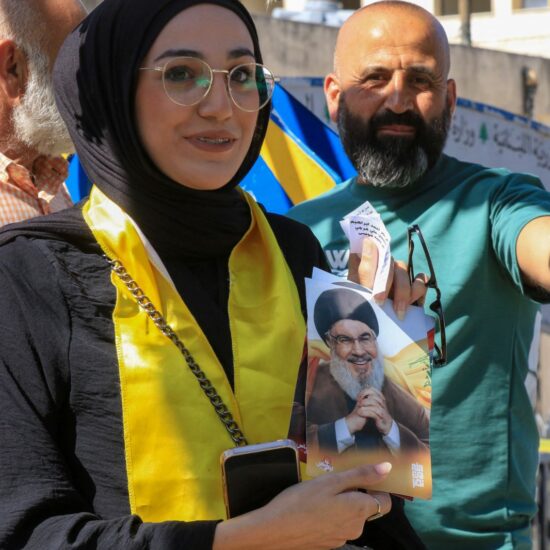
Nour Hajjar, a popular Lebanese comedian, recently encountered legal repercussions for telling allegedly offensive jokes.
On August 25, Hajjar was detained due to allegations of “stirring up trouble,” “attacking religious symbols,” and “disturbing the peace among nation’s elements”.
Without any knowledge as to why, Hajjar was summoned for questioning at the military police barracks in Rihaniye. On Tuesday morning, he returned to the military police headquarters in Baabda and signed a bail bond. Although he was released for the first joke he was Unexpectedly taken to the Palace of Justice without the presence of his lawyer. Once there, Judge Ghassan Oueidat ordered his arrest after hearing about a lawsuit filed against him by Dar al-Fatwa — Lebanon’s Muslim Sunni authority for a joke released five years ago.
The first allegations revolved around a recent joke he made concerning the financial struggles of Lebanese soldiers and how they are now compelled to take up jobs as delivery drivers was screened on the awk.word comedy platform, as well as the old joke that received complaints from religious authorities. This latter involved his mother and Muslim funeral practices.
A protest in solidarity with Hajjar was formed in front of the Palace of Justice in Beirut and Oueidat granted the comedian a residence document before being released. The judge has yet to make the verdict of whether to take legal action against Hajjar or not.
For some time, comedians, artists, activists, and journalists have been regularly summoned by arbitrary orders in Lebanon. Social media and the proliferation of hate campaigns both online and offline suggest that this may just be the beginning of even darker times to come. The future of freedoms in Lebanon looks increasingly uncertain and fearful.
“Not a joke”
For the past three years, security and military services in Lebanon have been subjecting activists to harassment and questioning regarding their online actions. According to an Amnesty report, this is occurring despite Lebanon’s recent pledge to protect freedom of expression as part of its 2021 Universal Periodic Review before the UN Human Rights Council. Those who speak out on social media are specifically targeted by authorities and referred for further investigation to the country’s military justice system – a clear breach of their rights.
In 2021, famed comedian Shaden Fakih was summoned to the Military Tribunal for an incident involving the Internal Security Forces. That May, she was brought in for questioning by the Cybercrime Bureau about a video she had released in which she joked and asked the police whether they would buy her sanitary pads during the COVID-19 lockdown or let her leave home to get them. Fakih faced accusations of vilifying and damaging the reputation of the ISF.
The response to the comedian’s case going before military courts was one of outrage and shock, especially as Lebanon was and remains in the midst of its harshest economic crisis.
These groups are now emboldened to assume the role of moral arbiters, attempting to dictate and constrain individuals’ expressions and lifestyles. This trajectory is steering us towards a perilous and unsettling future.
On the same day of Hajjar’s detention, in response to Judge Helena Iskandar’s call for his arrest, former Banque du Liban Governor Riad Salameh filed a lawsuit against the state, targeting the Indictment Division. Salameh was due to appear in court for money laundering and fraud charges.
According to Hajjar’s lawyer, Diala Chehade, alongside the disturbing rise of arbitrary detentions, the ruling class is also benefiting from the rise of “new actors” doing the oppression work on its part.
One example is Jnoud El Rab (Soldiers of God), a newly formed far-right Christian group, who attacked the queer-friendly Om Bar Room in Mar Mikhael.
Jnoud Fayhaa are another example from Tripoli who have stated their intention to physically assault Hajjar by “breaking his arms and legs.”
An alarming development
Chehade observes a concerning trend: the government’s silence concerning extremist groups and its failure to promptly curtail their dangerous activities.
“This phenomenon of extremist groups is gaining momentum, with their numbers multiplying. By not taking decisive actions, the government inadvertently grants them legitimacy and the ability to operate with impunity,” she expressed to NOW.
She further remarked, “These groups are now emboldened to assume the role of moral arbiters, attempting to dictate and constrain individuals’ expressions and lifestyles. This trajectory is steering us towards a perilous and unsettling future.”
The lawyer emphasizes that media plays a pivotal role in countering this oppression. This is especially pertinent given that Lebanon’s governing authorities remain heavily reliant on foreign funds. These funds come with the expectation that Lebanon adheres to the human rights agreements it has ratified. The media serves as a mechanism to spotlight the government’s inaction, ultimately holding it accountable to its commitments.
According to a report from the Samir Kassir Foundation (SKF), Hajjar’s personal Facebook account revealed alarming trends taking place on social media through the reactions they monitored and analyzed on Hajjar’s Facebook page.
Hajjar was subjected to an extraordinary degree of hostility from a campaign that had likely been prearranged. We surmise this may have a connection with his messages being circulated between Whatsapp groups, resulting in a high level of engagement.
In total, 200 social media accounts were analyzed in which just over half (106) posted comments that included hate speech or suggestions of violence. The remaining 94 accounts showed their disapproval of Nour without resorting to hate-filled language. 89 accounts demonstrated their disapproval without the use of hateful words.
Compared to other political parties, the Hezbollah group held a significant amount of affiliations at sixteen percent.
A systemic attack
Hajjar’s attack was not an isolated event, the report’s author Jad Hani told NOW. Various similar occurrences that had come before it.
“The beginning of the year marked a stark trend of increasing oppressive tactics against journalists, exemplified by the summoning of Lara Bitar from the Public Source and Jean Kassir from Megaphone. This has since become all too clear with what happened to Hajjar.” Hani said.
Hajjar has particularly suffered from the groundwork laid down by previous attacks, as Hani explains; following each incident, digital troops will launch a campaign to spread false information about the involved individual.
“The remarkable aspect of this attack was that those taking part made no attempt to conceal their political orientation, in contrast to previous similar cases,” the SKF researcher said. “Hajjar was subjected to an extraordinary degree of hostility from a campaign that had likely been prearranged. We surmise this may have a connection with his messages being circulated between Whatsapp groups, resulting in a high level of engagement.”
Hani had also taken note of what prior reports showcased: on platforms such as Twitter, certain events may be given a more intense representation than is the case in actuality.
“One hashtag can gain up to 2000 impressions through the effort of 200 accounts tweeting, reposting and generally being active with these tweets,” he explained.
Hani cautions that, with this amplified effort, people could possibly feel powerless and thus be deterred from defending Hajjar, resulting in a lack of support.
However, Hani advocates raising awareness and using social media to combat oppressive forces. By understanding the tactics used, oppressors are not allowed to win, and the public can organize and mobilize in a way that would reap productive results.
Dana Hourany is a multimedia journalist with @NOW_leb. She is on Instagram @danahourany and Twitter @danahourany.








